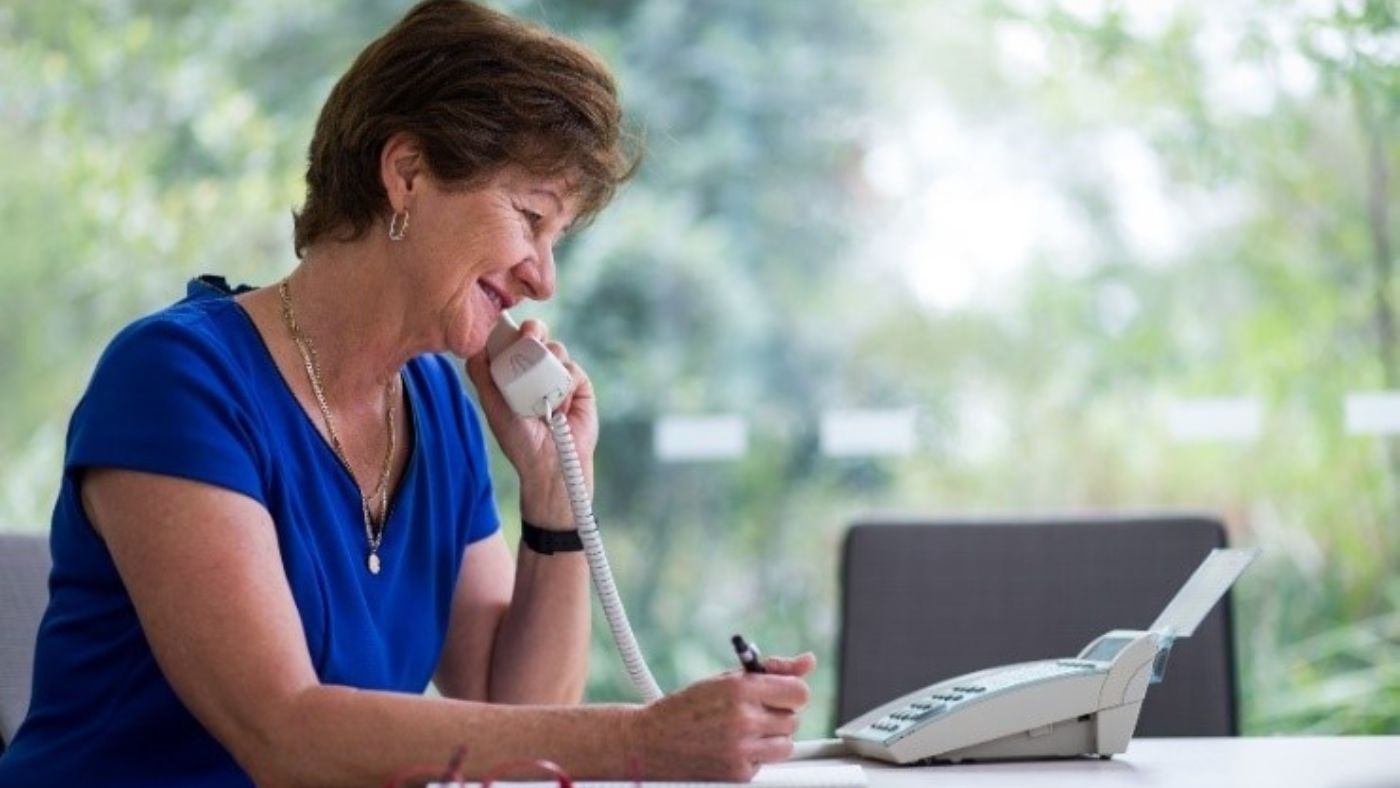We're here to support people with a dust disease: a look into the Asbestos Disease Research Institute.
Jocelyn McLean initially set up a support group for mesothelioma patients in 2011 when working in the cardiothoracic service at Royal Prince Alfred Hospital in Sydney.

The Well Living EPP Group
The group known as "The Well Living EPP group" was for patients who had Extra Pleural Pneumonectomy (EPP) (removal of the affected lung and its lining) and for their carers. She saw the benefits of helping people prepare to go through surgery and discuss their expectations and options. Jocelyn's background is in surgical nursing and her Master's topic specifically focused on the lived experience of people living with one lung.
The Asbestos Diseases Research Institute (ADRI) Mesothelioma Support Service was established in 2014, initially with independent funding. In 2017 ADRI was awarded their first support organisation grant from the icare Dust Diseases Board. ADRI is a dedicated research institute aiming to research the causes and treatments of asbestos and other dust-related diseases, particularly mesothelioma.
Vision
The vision of the Mesothelioma Support Service is to connect with patients early in their journey, build rapport, help them navigate an often-confusing pathway of care and, importantly, encourage quality living. With that grant, the role grew into a full-time position. That has been shared with Pam Logan. Pam brought her own set of skills and background in aged care, acute care and community care across many settings.
About the service
The service provides support to people impacted by mesothelioma and their families. Mesothelioma is a cancer affecting the cells which cover most internal organs. In 2020, the Australian Institute of Health and Wellbeing reported 642 new mesothelioma cases with the median age at diagnosis at 75. In the same year, 696 deaths were attributed to mesothelioma. The only known cause of mesothelioma is asbestos exposure.
Sadly, there is no cure for mesothelioma, but more treatment options are becoming available to help people with the disease live longer and have a better quality of life.
Support is offered to newly diagnosed patients who need information, empathy, and hope; for patients who are stable with the disease and living as well as possible; for those whose treatment no longer provides any benefit, where complex, unpleasant symptoms require attention, and who face imminent end of life; and the bereaved families.
This can include intermittent telephone consultations and enquiries, information sharing by email, face-to-face support groups and a closed online support group for patients who have had EPP surgery to remove the diseased lung.
A conversation with the founder
We spoke with Jocelyn about her work, here is what she had to say.
"Supporting this patient/carer group is extremely satisfying. Connecting, understanding, and trying to sort through the challenges of living with this disease provides only gratitude for our input.
“Support groups provide opportunities for patients/carers to share experiences and feelings and can be challenging for us. Dealing with this daily makes one feel like a toasted marshmallow, hard and crispy on the outside and soft on the inside. We have developed resilience over time.”
"It's challenging for the group. People come into the group often quite well, develop solid friendships and then die. Sadly, that is their pathway. We try to provide comfort and remind people about the normality of living and dying and the importance of memories that will live on.
As a society, we don't talk about death. People seem reluctant to plan for the end of life or funerals. They see it as a sign of giving in. Most people don't want to talk about themselves dying. People aren't comfortable talking about the end of life and often, they can't plan for this.
With the EPP group, we get to know partners and families very well. One beautiful man for 18 years. With the Bereavement group, we get to know partners. Some of this group are younger and go back to work. We call people in this group 2-3 times a year or maybe annually based on their needs.
ADRI Mesothelioma Support and icare Dust Diseases Care have a long-standing relationship, but there is more to do. There is a shared acknowledgement that education around the illness trajectory, treatments, and the impact of 'kindness in caring' has been lacking.
With recently awarded grant funding from the Dust Diseases Board, Kate Butler (Registered Nurse) joined the team to develop an online interactive education program for nurses, allied health professionals and any other medicos interested in mesothelioma patient care, as well as a patient/carer resource package that will provide appropriate resources in a given situation along the patient's timeline.
The team are passionate that information for both health professionals and patients/carers can only improve the current level of knowledge around mesothelioma and therefore improve the levels of care in general.
We have a lot of information and we want to share it with other professionals and patients/carers."
Get in touch
The ADRI Mesothelioma Support Services, located in the grounds of Concord Hospital in Sydney, is available to all people of NSW and Australia wide (for anybody not only icare clients) at no cost.
To get in touch with the service;
Email support@adri.org.au or phone (02) 9767 9854
Or ADRI via info@adri.org.au or phone (02) 9767 9800
The icare Dust Diseases Board has been funding research since 1983 and more recently organisations that provide support services to people affected by dust diseases and their families.

